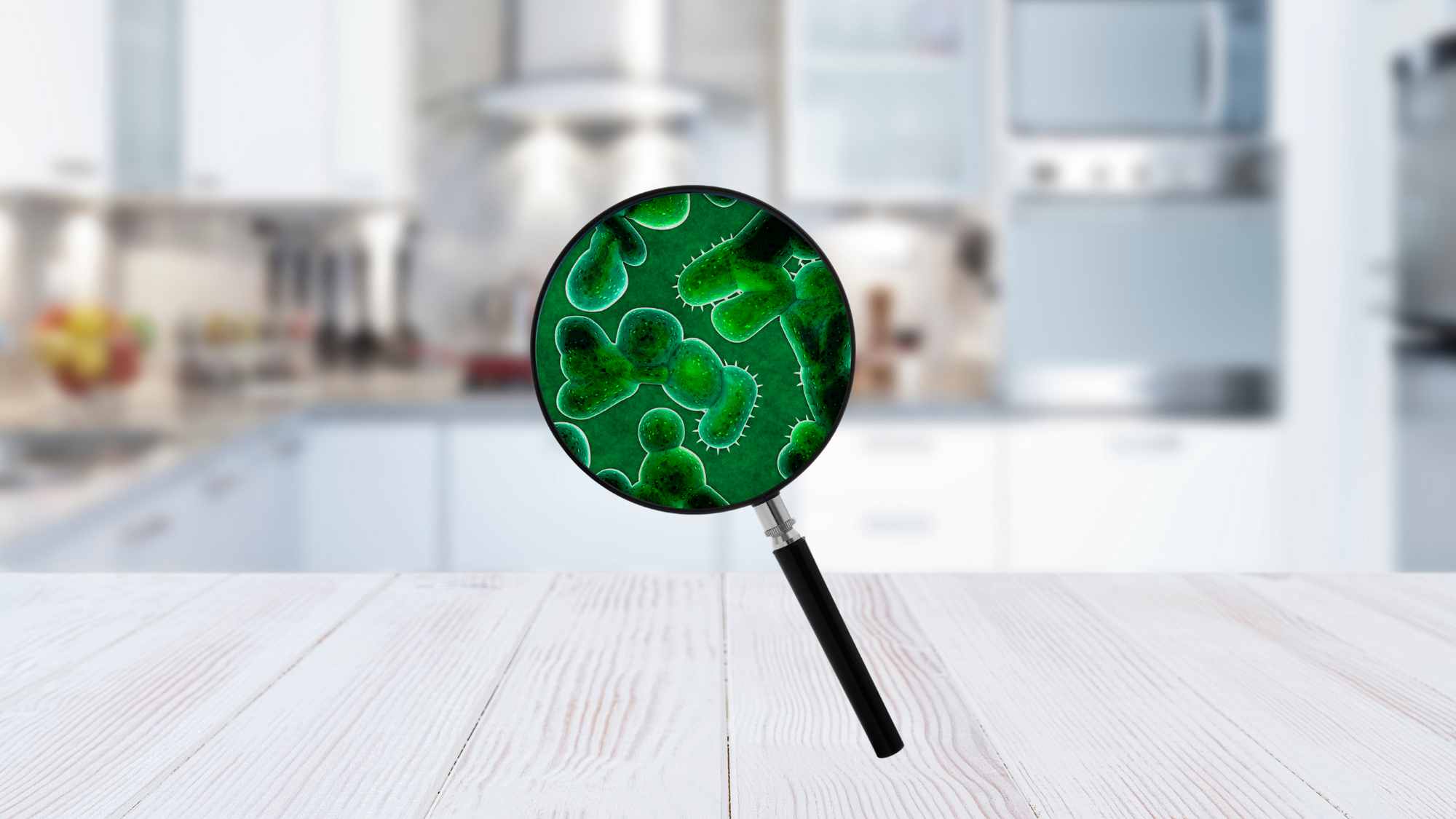
· By Carl Pronti
Kitchen Contamination: The Truth About Hidden Germs and How to Beat Them
As shocking as this might sound – your kitchen might be dirtier than your bathroom. That's because E. coli and other bacteria thrive in various hot spots across the kitchen. Even when you do clean, your cloths and sponges hold onto all that bacteria, and then you spread them.
There are several germ hotspots in the kitchen, and the answer in almost every situation is more thorough, more regular cleaning. Now, let's tackle those germs!
Sponges & Cloths
The average person doesn't change their sponges and cloths often enough, but they lull themselves into a fall sense of security by popping them in the microwave to zap them. Previous claims have stated microwaving sponges can kill 99% of bacteria, but that isn't true.
The safest bet is to replace sponges and cloths weekly. Or, you can invest in two of the ultimate kitchen products and get far more use out of them. The Scrub Daddy is an odour and bacteria-resisting sponge that can tackle any mess; The Minky Kitchen Pad has anti-bacterial protection, so it lasts longer and prevents bacterial growth.
Handles, Knobs, Taps, and Dials
Anywhere you touch is going to be dirtier than other spots – you handle dirty food, and then grab things without even thinking twice. Oil, grease, and bacteria find their way onto and into everything, so you need to be ruthless with daily wipe-downs. You can grab wipes to tackle these commonly missed hotspots if it's easier.
The Can Opener
Do you wash the can opener after every use? Or, do you simply toss it back in the drawer when you're done? That might sound innocent enough, but your can opener comes into contact with every food item it touches. Worse, it has nooks and crannies to hide germs and bacteria. So, always wash it after use. If you don't have a dishwasher, consider enlisting The Dish Daddy for extra help or a little scrub brush to ensure you get into every little spot.
The Bread Knife
Be honest – how often do you grab the bread knife, use it, wipe it and return it to its home? You're not alone – it's common, but you should always wash knives after use, even if it's just to slice bread.
While we're on the subject of knives – be sure to wipe down your knife block regularly as well. It's often overlooked because you wash the knives you store, but your hands touch that block, it's open to the air and collecting grease and grime. It isn't just the external part of the knife block either, you never know what has managed to worm its way into the knife slots themselves.
You can clean inside, though – compressed air will loosen any buildup, and you can empty the debris into your bin. Any type of thin cleaning tool should be sufficient to tackle the interior, as long as you use an antimicrobial cleaner to team with it.
Chopping Boards
Finally, you would be surprised by how dirty your chopping boards are. A tough antibacterial cleaner like Astonish Extra Strength Antibacterial Surface Cleanser is perfect for tackling chopping boards. Spray your boards down, let the cleaner sit for five minutes and then wipe them down. They should be fully dry before you carry out any additional food prep. You should clean your chopping boards before and after use.
Shop CleanHQ
The answer is simple – your kitchen will be cleaner if you make time to clean it properly, and having the right cleaning products on hand is a big part of the solution. Whether you want to stock up on Scrub Daddy sponges or Minky Pads, CleanHQ stocks a wide range of cleaning products from the world's biggest brands.
